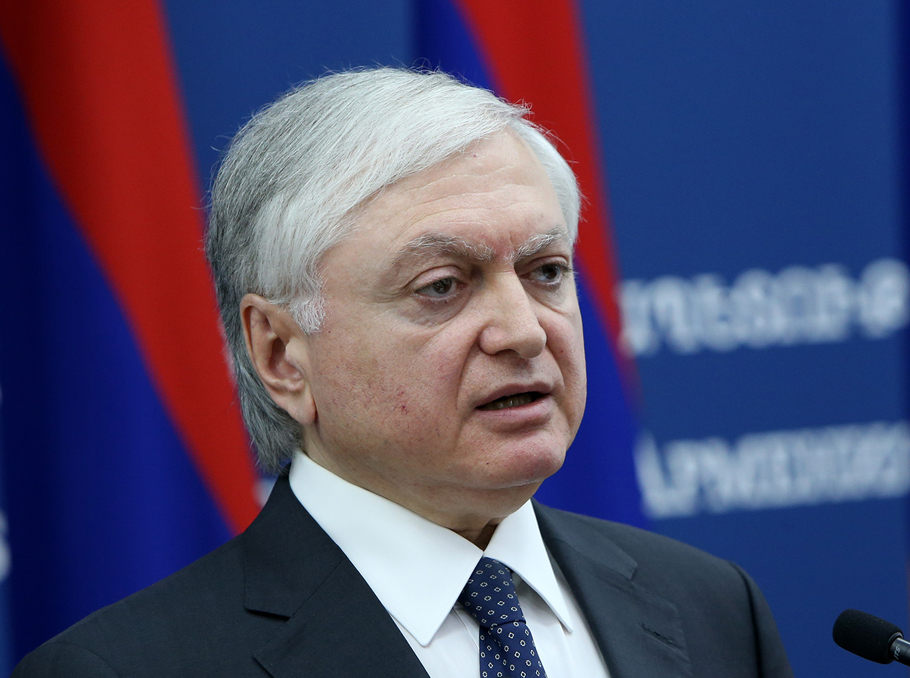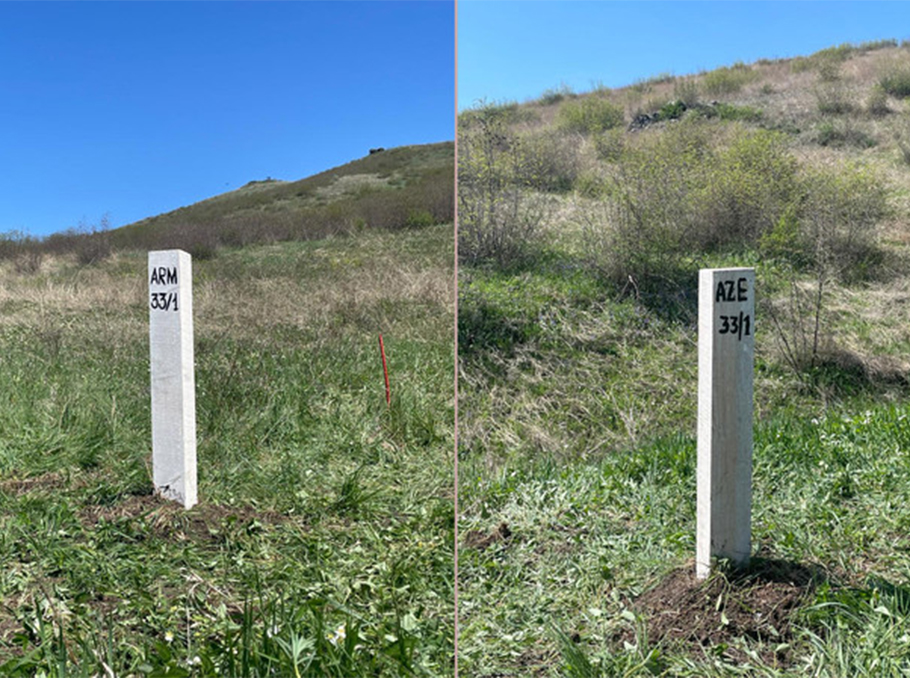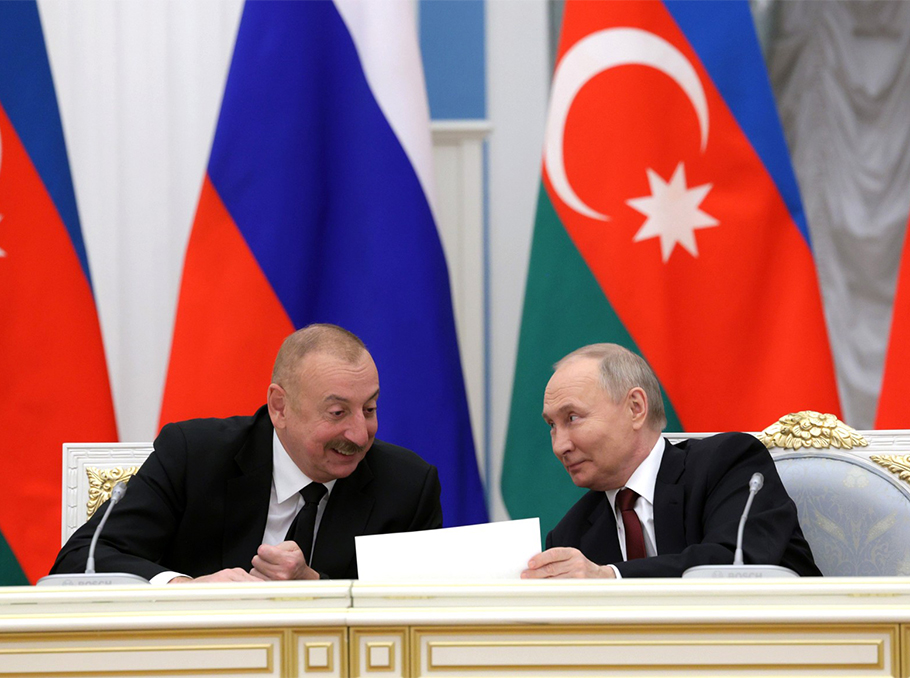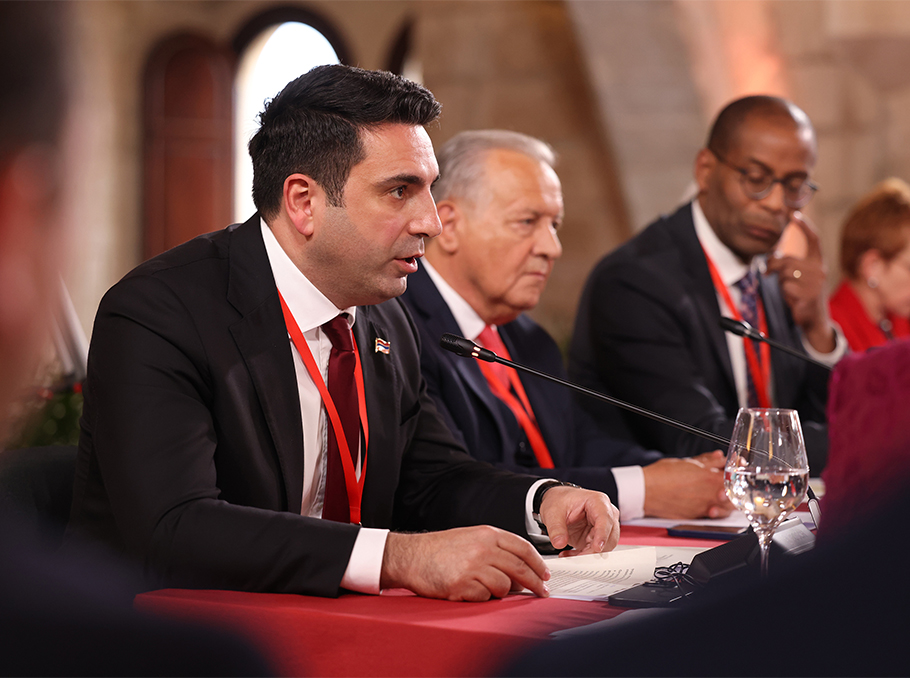Yerevan/Mediamax/. Armenia will finish the ratification of the Comprehensive and Enhanced Partnership Agreement (CEPA) with the EU in April 2018.
Armenian Foreign Minister has made the corresponding statement, while delivering a speech at the Committee on Foreign Affairs of the European Parliament on February 21.
We present certain excerpts from the speech.
On Armenia and the European Union
“The further consolidation of democratic institutions, rule of law, strengthening of judiciary, good governance are at the core of CEPA. The agreement reflects the depth and scope of our partnership and defines the guidelines for future collaboration. We strongly believe that it will contribute to the successful realization of the reform process and sustainable development of our country.
The importance of this agreement is not limited to the Armenia-EU relations, it is widely acknowledged and quoted as a successful example that brings integration processes closer to each other and effectively bridges interests in the spirit of cooperation.”
On conflicts and dividing lines
“Armenia does its best to improve the partnership climate. However, the cooperative mood in our region continues to be shadowed by the conflicts and dividing lines.
Almost 30 years past after the fall of the Berlin wall Turkey continues to keep its borders with Armenia closed.
When President Serzh Sargsyan assumed the office ten years ago, he initiated a process of normalization of relations between Armenia and Turkey without any preconditions. Turkey agreed to proceed on this basis and a year later Armenia and Turkey signed in Zurich two protocols with this purpose. However, just after the signature Turkey has backtracked from the agreements and returned to the language of preconditions that it had used before the beginning of the process. Turkey has attempted to link the Armenian-Turkish normalization process to the settlement of the Nagorno-Karabakh conflict based on ungrounded claims of the Azerbaijani side.
Any Turkish attempts to interfere in the Karabakh process or to link the normalization of relations with the Nagorno-Karabakh talks, harms both processes.
From the beginning of the process we made it clear in our contacts with the Turkish side as well as publicly that Armenia will never put under question the fact of the Armenian Genocide or the importance of its international recognition. True reconciliation does not consist of forgetting the past or feeding young generations with tales of denial. Armenia did not require the recognition of Genocide by Turkey as a precondition for the normalization of the relations. Paradoxically, it is Turkey that for 100 years has continuously denied the Genocide, has attempted to manipulate that issue, using it as another precondition.
The normalization process with Turkey could have created new opportunities for both of our nations and the region at large. Armenia spared no effort to see it succeed. Turkey has missed historic chance of reconciliation. Armenia does not resort to the language of preconditions, but equally, we shall never accept preconditions put forth by anyone. As President Sargsyan made it clear last Saturday in his speech at the Munich Security Conference, “We cannot wait eternally for Turkey’s response.”
On territorial claims and saber-rattling
“Nagorno-Karabakh has never been part of independent Azerbaijan. However, the leadership of Azerbaijan continues to claim Nagorno-Karabakh, but not only. On February 8th, the President of this country declared that different regions of Armenia, including its capital Yerevan, are historic lands of Azerbaijan, where Azerbaijanis must return and that it is Baku’s political and strategic goal. I will leave to your consideration if this is a territorial claim towards a neighboring country, saber-rattling, or something else. But, it is well known that Baku’s belligerence on use of force and threat of force have many times turned into real actions.
In April 2016, Azerbaijan again unleashed large scale military offensive against Nagorno-Karabakh that was accompanied by the gross violations of the international humanitarian law, including killing of children, women, elderly people, mutilation of the corpses, beheadings of captured soldiers in the style used by notorious terrorist organizations. Obviously, this aggression has caused a serious damage to the peace process. Two summits were organized in Vienna and St. Petersburg by the mediator Co-Chair countries USA, Russia and France in the aftermath of aggression, which were aimed at stabilizing the situation and creating conducive conditions for the advancement of the peace process. However, Azerbaijan backtracked from the agreements reached at these Summits and refused to implement them. This concerns first and foremost to the creation of the mechanism for investigation of the ceasefire violations and the expansion of the monitoring capacities of the team of the Personal Representative of the OSCE Chairperson-in-Office, and of course the strict adherence to the trilateral ceasefire agreements of 1994-1995.”
On backtracking from Krakow agreement
“There was a one and half year long interval between the high level meetings before the Presidents of Armenia and Azerbaijan met again in Geneva last October. The joint statement of the Ministers of Foreign Affairs of Armenia and Azerbaijan, issued together with the Co-Chairs after the Summit, reflected what Armenia has been long advocating for: to intensify the negotiation process and to take additional steps to reduce tensions on the Line of Contact, meaning the realization of the agreements reached at the Vienna and St. Petersburg Summits.
However, Azerbaijan fails to respect the agreements. The recent most illustrative case was the meeting of the Foreign Ministers of Armenia and Azerbaijan in Krakow in January, where was agreed in principle to implement the expansion of the Office of the Personal Representative. Armenia and the Co-Chairs issued almost identical statements reflecting this agreement while Azerbaijan has not made any reference to it either after the meeting or up to now. When the Co-Chairs were back to the region a few days ago, Azerbaijan again failed to honor the implementation of the agreement on the expansion.”


























Comments
Dear visitors, You can place your opinion on the material using your Facebook account. Please, be polite and follow our simple rules: you are not allowed to make off - topic comments, place advertisements, use abusive and filthy language. The editorial staff reserves the right to moderate and delete comments in case of breach of the rules.